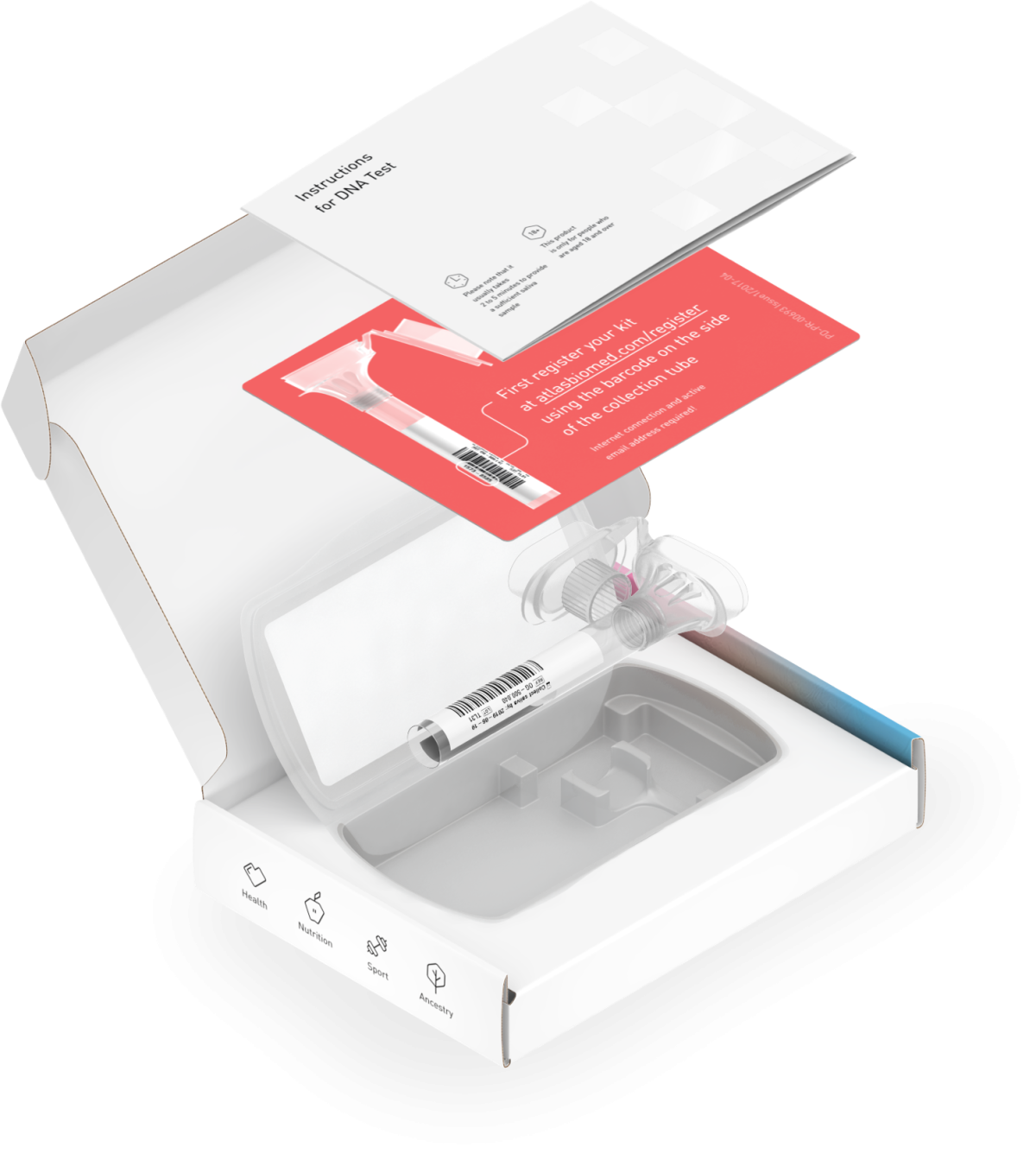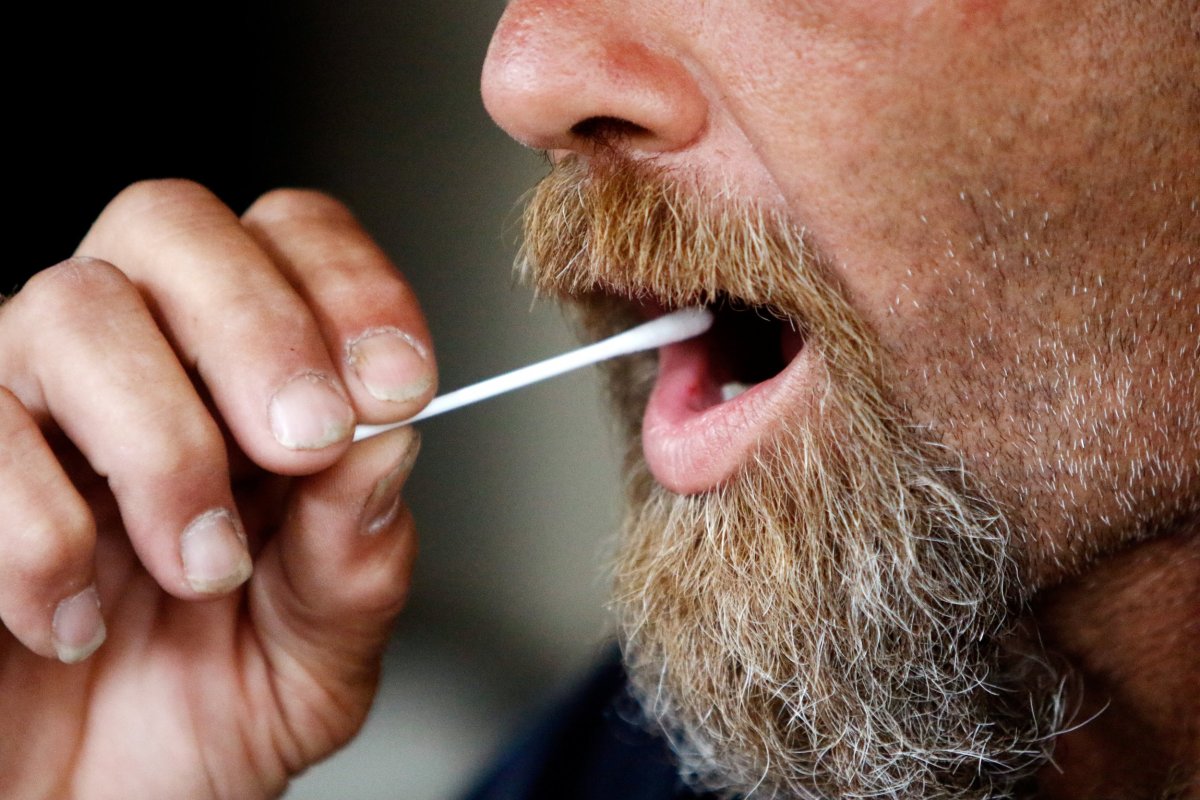Swabbing your cheeks and spitting into vials can open up a whole new world. Send off your samples to a genetic testing company like Ancestry, and you can learn where your forebears came from. But the industry that began by telling people which countries their ancestors inhabited has veered into the realm of medicine—some genetic testing companies can also tell if you're carrying genes that have been linked to serious diseases like cancer, Alzheimer's and diabetes.
Yet as scientists continue to puzzle out our DNA and the world becomes increasingly digital, private genetic-testing companies will play a tricky role in health care, blurring the lines between being a patient and being a consumer.
Unlike finding out that you share blood with people from an unexpected nation, a list of potentially dangerous DNA mutations isn't the sort of information people keep to themselves. The results of private genetic tests are already starting to leak from living rooms and into the clinical setting.
Sergey Musienko, the CEO and co-founder of U.K.-based Atlas Biomed, gave a hypothetical example of a couple who are trying to have kids. With the help of a genetic-testing service, the couple find out that they both carry a recessive gene for cystic fibrosis that could potentially be passed on to their baby. In that case, the couple would know to discuss the matter with each other and their doctor.
"The goal here is, of course, to empower people with knowledge about themselves," Musienko told Newsweek.
Ancestry information is not to be discounted in this health movement. Anne Wojcicki, the CEO and co-founder of 23andMe, noted that a lot of people who take her company's DNA test find out about Jewish ancestry they had no idea existed. Knowing about those roots may lead to someone being screened for mutations in the BRCA1 and BRCA2 genes, which are more common in the Ashkenazi Jewish community and put people at a higher risk for breast cancer. 23andMe now tests for BRCA mutations directly.
The company can "help usher in an era where...the consumer is more of a partner in health care and they have this ability to take charge in preventing a condition," Wojcicki said.
Preventing a condition is not just about finding a potentially harmful genetic mutation and talking to a doctor. Musienko pointed to conditions like Type 2 diabetes, which people typically develop as they age. Learning about a genetic predisposition could spur someone to make lifestyle changes that reduce disease risk, such as losing weight, quitting smoking and better managing sugar intake.
Wojcicki sees her company moving into an advocacy role that works in conjunction with patients and various health care providers after private genetic tests reveal people's inner makeup.

"If you want to have great health care, you have to advocate for yourself," Wojcicki said. "The people who get the best outcomes are the people who are the most involved and who are…the squeakiest," she added, referring to the proverb about the loudest wheel getting the grease.
Wojcicki suggested that 23andMe could one day help people find the hospitals that can best fit their needs, access their own medical records with more speed and efficiency, and navigate billing systems.
"You're not a subject…you want to own your information," she said. "We're trying to get people to understand they're actually in charge."
She said things could change once people know what it's like to have easy access to medical information. Ease of access goes back to the original mission of analyzing people's DNA and showing them what's going on at a microscopic level.
It's not without pitfalls, however. Although knowledge of disease-causing genetic mutations can help connect people with the medical care they need, private genetic testing could reduce the efficiency of health care—an industry already rife with waste, said Kathryn Phillips, a professor at the University of California at San Francisco's School of Pharmacy.
"We have found…that patients and consumers don't really understand personalized medicine. They don't really understand genetic tests," said Phillips, who is also an expert in emerging technologies in health care. "We're seeing proliferation of all kinds of genetic tests, ranging from ones that are truly helpful to ones that are just entertainment. I think the average consumer has trouble telling the difference."
Phillips said there could be situations where consumers find themselves at risk for various diseases and rush to the doctor even though they have no reason to be alarmed.
"There could be downstream additional costs based on people wanting a second opinion, or additional testing based on the results," she said.
Genetic mutations are not always harmful, so companies have to balance their results with that in mind, the professor said. And although DNA variations are important, they are just one piece interlocking with many others to build a complete human.
Another concern is the debate about how accurate private genetic tests are across the board, with the results varying between companies.

"Mainly people need to understand what it is they're getting, what tests are being done, what are they looking for, what's the quality of the testing." Phillips said. "And that's true of any type of test."
Those cautionary words could be important for more people down the road, as this sort of testing expands and becomes more attractive as a lower-cost, at-home alternative to inspecting genes in a clinical setting.
"People are choosing convenience over traditional medical services," Wojcicki said, adding that those choices could alleviate some of the burden on the country's health care infrastructure. "People want to find care that is readily available."
While emphasizing that doctors still need to play a core role in the process, Musienko echoed the sentiment that patients are taking control and what they want is changing. He referred to the "new demand" for preventing illness and maintaining health into old age, rather than just curing an existing disease.
"Preventing the disease is so much easier than dealing with the consequences of the disease once it's already out there," he said. Health care is shifting "onto the stage where the person is not even a patient yet, it's just an individual who wants to stay healthy for longer."
At the end of the day, Phillips said, people just have to know what they're getting into.
"I think consumers should be informed. That it's one thing to do something for fun, like wanting to know where your ancestors come from, but you might want to be prepared that you might get information that you find disturbing or that you might not want to know."
Uncommon Knowledge
Newsweek is committed to challenging conventional wisdom and finding connections in the search for common ground.
Newsweek is committed to challenging conventional wisdom and finding connections in the search for common ground.
About the writer
To read how Newsweek uses AI as a newsroom tool, Click here.








